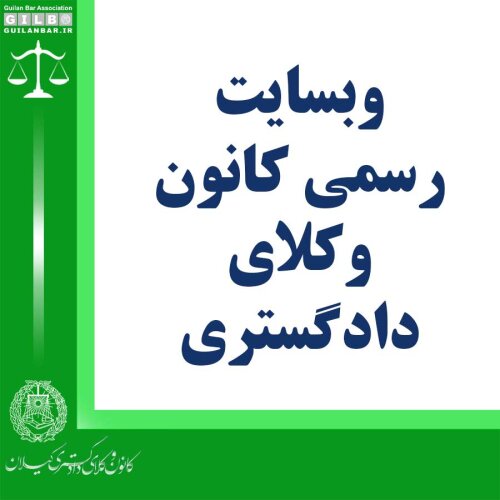Best FDA Law Lawyers in Iran
Share your needs with us, get contacted by law firms.
Free. Takes 2 min.
Or refine your search by selecting a city:
List of the best lawyers in Iran
About FDA Law in Iran
Food and Drug Administration (FDA) Law in Iran governs the production, import, export, distribution, advertising, and sale of food, pharmaceutical products, cosmetics, hygiene products, and related medical devices within the country. The Iran Food and Drug Administration (IFDA), established under the Ministry of Health and Medical Education, is the main regulatory body responsible for overseeing these activities. The aim of FDA Law in Iran is to ensure the safety, quality, and efficacy of products consumed by the public, while protecting consumer rights and public health.
Why You May Need a Lawyer
There are several situations where individuals or businesses may require legal assistance in the field of FDA Law in Iran:
- Registering new products such as medicines, dietary supplements, medical devices, or cosmetics
- Navigating import or export regulations for food and drug products
- Ensuring compliance with labeling, packaging, and advertising standards
- Responding to IFDA inspections or enforcement actions
- Challenging the rejection of a product registration or license
- Handling product recalls or safety issues
- Litigating against or responding to allegations of non-compliance or counterfeit products
- Negotiating with Iranian authorities regarding regulatory requirements
- Understanding new or changing regulations in FDA Law
- Protecting intellectual property or proprietary product formulations
Local Laws Overview
FDA Law in Iran is primarily based on national legislation, executive regulations, and IFDA guidelines. Key legal frameworks include the Law on Food and Beverage Hygienic Supervision, the Law of Medicines and Related Substances, the Regulations on Medical Devices, and various circulars from the Ministry of Health and the IFDA. Compliance with Islamic standards (Halal regulations) is often a requirement, especially for food and beverage products.
All local and foreign entities seeking to market, distribute, or import regulated products in Iran must obtain registration and approval from the IFDA. Strict requirements exist regarding ingredients, clinical trial data, safety documentation, and adherence to Iranian labeling laws. Advertising and marketing of certain products, particularly pharmaceuticals and cosmetics, are tightly controlled to prevent misleading claims. Non-compliance can result in legal sanctions, fines, withdrawal of products, or even criminal charges.
Frequently Asked Questions
What is the Iran Food and Drug Administration (IFDA)?
The IFDA is the main governmental authority regulating food, pharmaceuticals, cosmetics, medical devices, and related products in Iran. Its mandate covers product registration, quality control, post-market surveillance, and enforcement of laws and regulations.
Which products require approval from the IFDA before sale in Iran?
All food products, drugs, dietary supplements, medical devices, cosmetics, and related health products must receive IFDA approval prior to being marketed or distributed in Iran.
How can a foreign company register a new drug or medical device in Iran?
Foreign companies must work with a local Iranian agent or partner to submit applications to the IFDA, including detailed dossiers, clinical data, safety information, and compliance with Iranian standards and regulations. The process can be complex and often requires legal assistance.
What are the requirements for product labeling in Iran?
Product labels must be in Persian, include accurate ingredient and safety information, comply with Halal standards, and receive IFDA approval. Specific requirements vary by product category.
Can imported products be sold in Iran without local registration?
No. Imported food, drug, or related products cannot legally be sold in Iran without prior registration and approval from the IFDA.
What should a company do in case of an IFDA inspection?
Companies should fully cooperate with IFDA inspectors, provide the requested documents, and ensure compliance with all applicable regulations. Legal counsel is recommended if any issues arise.
What penalties exist for violating FDA Law in Iran?
Penalties range from administrative fines and product recalls to business license revocation and, in severe cases, criminal prosecution, particularly if public health is at risk.
Are clinical trials required for pharmaceutical registration?
Yes. Clinical trial data is generally required for new pharmaceuticals, and studies must meet IFDA requirements. In some cases, data from other jurisdictions may be accepted, but local trials are often necessary.
What legal recourse is available if a product registration is rejected?
Applicants can appeal the IFDA decision through formal administrative channels or, if necessary, through the Iranian legal system, with the assistance of a legal professional experienced in FDA Law.
How can consumers report unsafe or non-compliant products?
Consumers can report issues directly to the IFDA or its affiliated provincial offices. The IFDA investigates complaints and can mandate corrective actions or recall products as needed.
Additional Resources
If you need more information or support related to FDA Law in Iran, consider reaching out to the following entities:
- Iran Food and Drug Administration (IFDA) offices
- Ministry of Health and Medical Education
- Iranian Chamber of Commerce for business-related guidance
- Professional associations for pharmaceuticals, food, or medical devices
- Iranian Standard and Industrial Research Organization for technical regulations
- Registered law firms with FDA Law expertise
Next Steps
If you believe you need legal assistance related to FDA Law in Iran, start by gathering all relevant documents such as product information, correspondence with regulators, and evidence of compliance or non-compliance. Seek a qualified lawyer or law firm with experience in Iranian FDA regulations and product registration processes. Legal professionals can guide you through compliance, represent you in disputes, and help protect your business interests. For urgent matters, contact the IFDA or Ministry of Health directly and document every communication and action taken.
Staying informed and proactive can help you navigate the complex regulatory landscape of FDA Law in Iran, safeguard your products, and ensure public safety.
Lawzana helps you find the best lawyers and law firms in Iran through a curated and pre-screened list of qualified legal professionals. Our platform offers rankings and detailed profiles of attorneys and law firms, allowing you to compare based on practice areas, including FDA Law, experience, and client feedback.
Each profile includes a description of the firm's areas of practice, client reviews, team members and partners, year of establishment, spoken languages, office locations, contact information, social media presence, and any published articles or resources. Most firms on our platform speak English and are experienced in both local and international legal matters.
Get a quote from top-rated law firms in Iran — quickly, securely, and without unnecessary hassle.
Disclaimer:
The information provided on this page is for general informational purposes only and does not constitute legal advice. While we strive to ensure the accuracy and relevance of the content, legal information may change over time, and interpretations of the law can vary. You should always consult with a qualified legal professional for advice specific to your situation.
We disclaim all liability for actions taken or not taken based on the content of this page. If you believe any information is incorrect or outdated, please contact us, and we will review and update it where appropriate.
Browse fda law law firms by city in Iran
Refine your search by selecting a city.
















